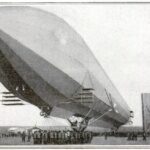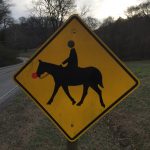On September 15th, 2017 the Cassini spacecraft, launched from Earth almost twenty years ago, will crash into the upper atmosphere of Saturn. I feel like both the probe and the planet deserve better. We’ve crashed objects into other planets before, sometimes unintentionally. In 1979, after six years in orbit, Skylab crashed back to Earth. So did space station MIR in 2001, completing its fifteen year run, although unlike the Cassini spacecraft the stations weren’t carrying seventy-two pounds of plutonium.
For most of human history the planet Saturn was the last planet. Even when people still believed the Earth was the center of the universe and that the Sun and all the planets revolved around it, even before people understood what planets were, when they were just “wandering stars” astronomers put Saturn farthest out. Its name, Saturn, comes from the Romans’ name for the god who was the father of Jupiter. Even in mythology Saturn is farther away. Even for Plato and Aristotle, who thought everything in the sky moved on crystalline spheres, and they even talked about “the music of the spheres” as they ground against each other which I thought would make a horrible cacophony unless the aether was like a vinegar-dipped finger on a leaded water goblet, but that’s another story, Saturn’ sphere was at the very edge, the farthest of the planets. Only the stars, clustered in their own sphere, lay beyond.
It’s distinctive because of its rings but those were unknown until 1610 when Galileo first turned his telescope in Saturn’s direction, and he thought they were two giant moons. A few years later when he looked again he thought they’d disappeared. Saturn is the hipster planet and wears its rings at a jaunty angle so from Earth’s perspective it looks like it’s tipping its hat at us and every once in a while those amazing rings, only about three-hundred feet thick, are only visible to us as a narrow shadow. Then in 1655 Dutch astronomer Christiaan Huygens, who first proposed that the rings were a disc around the planet, discovered Saturn’s moon Titan, and in 1675 Giovanni Domenico Cassini observed a gap between two of the main rings. It’s now known as the Cassini gap, although the rings, once called A and B, have since been further divided, like notes, into A through G, so there is music of the rings.
Saturn would continue to be the edge of the known solar system for more than a hundred years until the discovery of Uranus and the launch of a thousand jokes about how you could only find it with a telescope, and Neptune would be discovered a short time later. Then Pluto was named a planet in 1930 and demoted when astronomers realized it was one of thousands of trans-Neptunian objects. Astronomers have also confirmed what, for a long time, we’d suspected: there are more planets out there orbiting other stars. Maybe Earth isn’t unique. Maybe, for that matter, Saturn isn’t either, which is part of the what makes it important. We send spacecraft to Saturn, and to the other planets, is because of what we share in common, and what they can teach us about our own world.
Still there is something special about Saturn. The rings haven’t always been there and will eventually be absorbed into the planet itself. It should be noted that Jupiter, Uranus, and Neptune also have rings. They just aren’t as spectacular. Saturn’s moon Titan is the largest in the solar system, bigger than Mercury, so it’s aptly named in spite of never having won a Superbowl. It’s the only moon with a dense, observable atmosphere, and it wasn’t until the Huygens probe, which went with the Cassini spacecraft, landed on Titan on January 14th, 2005 that we got our first view of its surface. The Huygens probe was the first human creation to land on another planet’s moon.

An unearthly view. Source: Wikipedia
And like I said it was, for a very long time, Saturn was at the edge, the final planet. Beyond it only lay the stars which were clustered together in a sphere of their own.
I still hold onto this crazy belief that someday we’ll get there. There’s no surface on Saturn to stand on but maybe humans will land on Titan. Maybe they’ll fuel their ships with its lakes of liquid methane and ethane. Maybe they’ll harvest the icy rings for water. At anywhere from 746 million to more than a billion miles from us Saturn would make a pretty good rest stop for travelers planning to visit other suns. I won’t call it destiny because that implies that it’s something that will just happen. Getting there will be only the first of several challenges. It took the Cassini spacecraft six years to get there even after several slingshot maneuvers around Venus, Earth, and Jupiter and a top speed of more than forty-two thousand miles an hour, and it didn’t have to carry food, water, air, radiation protection, and a bowling alley, or at least some stationary bikes. Just because something is difficult, though, doesn’t mean it’s impossible, and I think people will accept the challenges, to quote a famous Earth orator, “not because they are easy, but because they are hard, because that goal will serve to organize and measure the best of our energies and skills, because that challenge is one that we are willing to accept”. And maybe, having accepted, future travelers will stop to remember that long after our view of the solar system had been extended there was a probe that came to deepen it.
Hail and farewell Cassini.







When I was about 8 years old, I wanted to be an astronomer. My parents bought me a proper telescope for my ninth birthday, and my dad and I spent countless hours stargazing. I always assumed that by the time I was this old, that we would have perfected the art of space travel, and would have colonies on the moon, Mars, and Titan. Unfortunately, humans spend too much time and money on fighting, and not near enough on exploration. Love the Holst clip–“The Planets” is one of my favourites:-)
Fun fact: the Saturn suite was Holst’s favourite part of “The Planets”. I learned that from reading the chapter on Saturn in Dava Sobel’s The Planets when I started reading this.
Anyway it’s really cool that you contemplated becoming an astronomer, and you’re right that humans spend too much time and money on fighting. People make fun of, say, the movie 2001 for predicting lunar colonies and regular flights to the Moon, but as others have pointed out if the space program had continued at the rate it was going in the 1960’s we would have those things.
Heck, as Neil DeGrasse Tyson has pointed out, the only truly implausible thing about The Martian is that all the major decisions are made by scientists, not politicians.
This post is music to my ears and eyes, Chris.
I’m so glad you enjoyed the music of this sphere, although I forgot to mention that scientists have found that the rings of Saturn could actually be played like a record. It’s a planet with a music all its own.
I think it’s best if we just observe planets from afar and not try to colonise another one until we have sorted out the abominable way we treat this one. Astronomy is extremely fascinating and space is very beautiful but we as the observers are an ever present danger to it all, in my opinion. When you consider what we have done to planet earth, and the way we treat each other, along with the way we use other living beings to serve our selfish needs, we don’t deserve to visit other planets or find other life forms. We need to lose our arrogance and assumption that we are superior to everything else.
We really do need to think more carefully about how we treat this planet, and when I hear, for example, people suggest terraforming Mars I’m appalled that they’re so arrogant that they think they could and should radically transform another planet. And yet I also hear astronauts talk about the perspective that being up in space gives them. Being able to look down at Earth from a great distance helped spur the environmental movement, and a lot of astronauts say politicians should be taken up into space because of how it changes how one sees this pale blue dot we depend on for life.